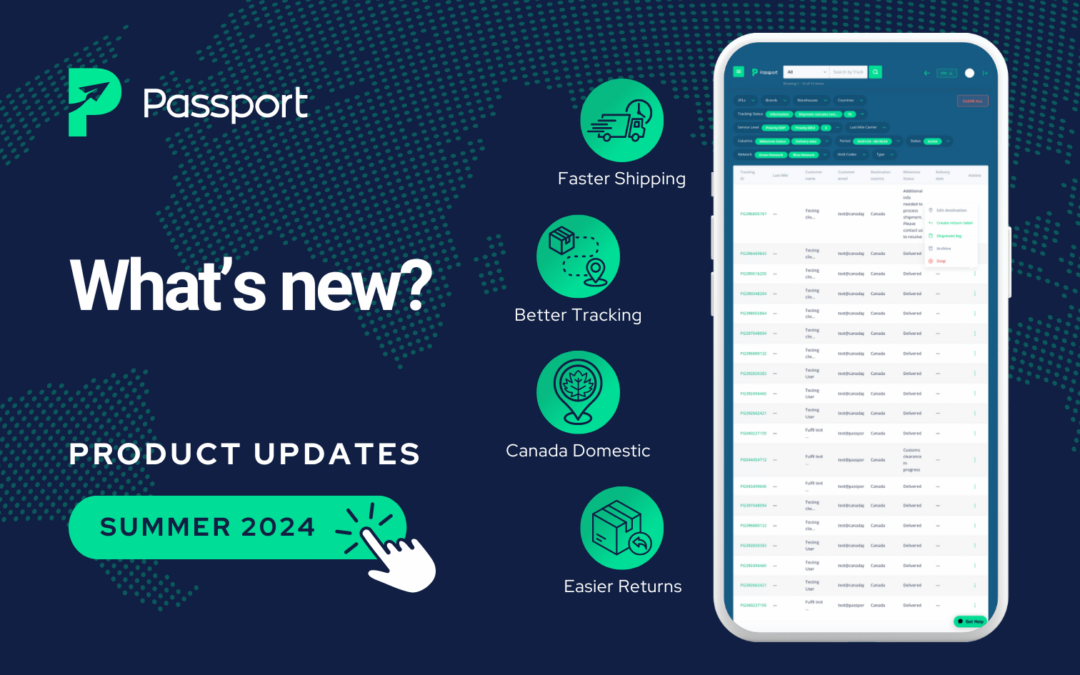Shopping trends have drastically changed in recent years, shifting away from the traditional experience of searching for items in physical stores. Nowadays, more and more customers are opting for online shopping as their preferred way to buy products. The ability to shop from anywhere at any time, paired with seemingly endless options and the convenience of delivery, creates a pretty unbeatable experience.
These modern changes in consumer shopping habits have played a significant role in the notable growth of the e-commerce industry, and this upward trajectory is expected to continue in 2023 and beyond. While e-commerce may seem simple, it’s a constantly evolving landscape with ongoing developments.
We’ve compiled a list of the top seven e-commerce industry trends predicted to be the most impactful in 2023. Whether you’re a seasoned online retailer or new to the e-commerce space, it’s important to be aware of these progressions and take proactive measures for your online store’s success. So let’s dive in.
1. Zero-Party Data and Privacy
One of the latest e-commerce trends is zero-party data and privacy. While most customers appreciate a shopping experience tailored to their unique preferences, some individuals may feel uncomfortable sharing their data. Many people are worried about how e-commerce websites will use their personal information and whether collecting this data could pose any security risks.
Several companies are beginning to implement a zero-party data policy in response to Google’s strategy to end support for third-party cookies. As the e-commerce industry shifts to this approach, it’s important to balance respecting customers’ privacy concerns with collecting their data to provide personalized shopping experiences.
Here are some suggestions to consider:
-
Keep customer data strictly within your organization to prevent potential security breaches, theft, or other problems.
-
Make sure to put the necessary measures in place to protect your customers’ data and privacy. If you have a large number of customers, consult with an expert.
-
It’s important to communicate your policies regarding data collection to ensure transparency. Explain how you collect, store, and use this data.
-
If your company sells products to individuals in the EU, you’ll need to comply with the General Data Protection Regulation (GDPR), which aims to ensure that customer information is used fairly, stored safely, and protected from misuse. Non-compliance with the GDPR can result in significant penalties, so it’s important for businesses to understand and follow its guidelines.
2. Artificial Intelligence for Personalization
Using artificial intelligence (AI) for personalization is one of the most popular and growing online shopping advancements. The most effective way to use this trend is targeting specific moments in the buyer’s journey. For example, you could send a bonus “thank you” gift to first-time customers or provide a special discount to individuals who leave their cart without making a purchase.
Personalization can be extremely effective in creating brand loyalty. According to a survey by Shop Circle, 80% of consumers are more likely to purchase from a company that offers a personalized shopping experience.
3. AR & VR Shopping Experiences
One of the top reasons consumers can be hesitant about online shopping is the uncertainty around how an item will fit them or their lives. Augmented reality (AR) and virtual reality (VR) can help overcome this problem by allowing people to test products before purchasing.
As a result:
-
Even if customers can’t physically see the product, they can still understand what it will be like. For example, someone can determine how a pair of glasses would look on them or if a furniture item could fit in their room.
-
When consumers get a chance to preview a product before purchasing it, they can make better buying decisions. This ultimately results in fewer product returns.
4. Voice Search
Many consumers are already relying on smart speakers and voice assistants to help them with daily tasks. Seeking product recommendations from Alexa or Siri, instead of manually browsing through an online store, is set to become a preferred shopping method in the future given the time savings.
To stay ahead of the curve, e-commerce businesses should start incorporating voice search into their strategy. By optimizing your website accordingly, you can gain a competitive edge, boost sales, and improve the customer experience.
5. Buy Now Pay Later (BNPL) and Subscription Models
In response to job losses and financial difficulties caused by the COVID-19 pandemic, utilization of the Buy Now Pay Later (BNPL) model has increased in popularity. Consumers have found this service to be beneficial as it enables them to make purchases now and defer payments to a later date. With BNPL transactions, customers have the option to pay in installments or utilize zero-interest credit cards instead of paying upfront. Shop Pay Installments on Shopify serves as a prominent example of this approach.
Similar to the BNPL model, subscriptions distribute the expense of an investment over time, with small and recurring payments that align with the ongoing utilization and satisfaction of the purchase. Compared to a large initial payment, subscription models can be a more pleasant, affordable, and enticing way to make purchases.
6. Customer Support As The Top Priority
Effective customer support is essential for the success of any business. When customers encounter issues with products or services, it can discourage future purchases and deter potential buyers. It’s ultimately the responsibility of the company to deliver high-quality customer service.
According to a recent survey by Zendesk, 81% of customers believe that positive support experiences increase the likelihood of repeat purchases. Live chat has emerged as the most popular communication channel, with businesses leveraging chatbots to streamline the customer journey from acquisition to retention.
Furthermore, the growth of chatbot usage in online shopping is expected to continue. Companies are leveraging chatbots to improve customer service by providing quicker and more accurate responses. Prioritizing personalized and timely customer service should be a top priority for every e-commerce business.
7. Sustainable Commerce
Sustainable commerce is an enduring movement in online shopping, as modern consumers favor businesses that demonstrate responsible production, packaging, and shipping practices. The growing number of environmentally conscious consumers makes it imperative for e-commerce retailers to embrace this shift.
To align with sustainability principles, businesses are adopting practices such as using biodegradable products, reusing supplies, and minimizing paper usage. These efforts showcase their commitment to being environmentally conscious.
Conclusion
In 2023, we are witnessing several key trends that will have a lasting impact on the online shopping industry.
From the power of AI and immersive experiences provided by AR and VR, to the emergence of innovative commerce models such as voice search, BNPL, and subscriptions, consumer needs and preferences are rapidly evolving.
Additionally, cultural shifts driven by increased privacy concerns as well as a focus on customer support and sustainability will require businesses to closely monitor and adapt to these movements. Companies should begin implementing innovative strategies to not only thrive, but survive in the evolving e-commerce landscape.
This article is brought to you by Passport Shipping— the modern international shipping carrier for e-commerce. We partner with modern DTC brands to build international shipping solutions that deliver the experience customers across the world deserve. Find out more about how Passport can help your business reach its global potential here.




